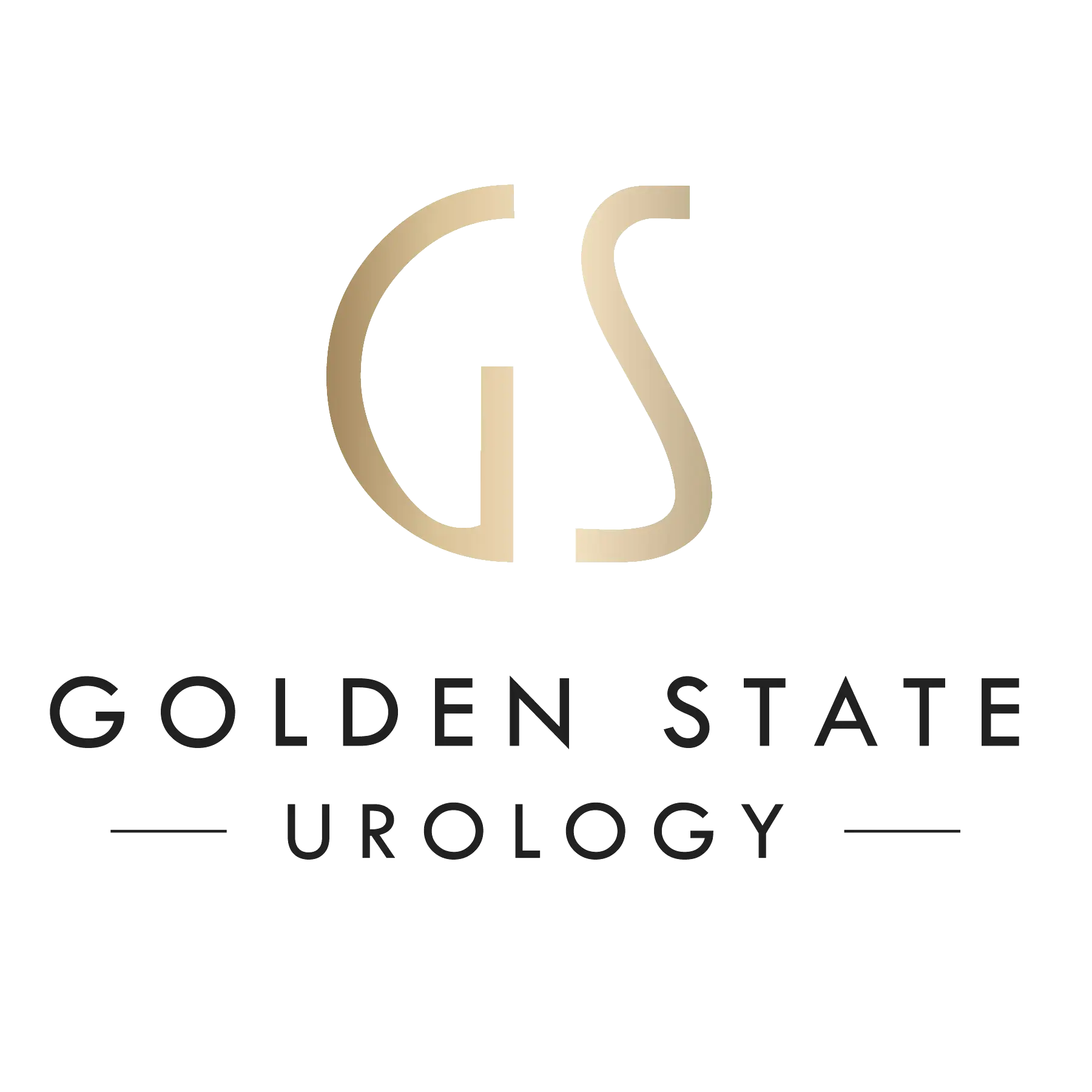Drugs That Cause Erectile Dysfunction: Common Medications to Watch
Mar. 5, 2020Are There Drugs That Cause Erectile Dysfunction?
One reason erectile dysfunction becomes more common with age is that older men are more likely to be prescribed medication. In fact, an estimated 25% of all ED issues are a result of side effects of medications that cause erectile dysfunction, according to the Harvard Special Health Report Erectile Dysfunction: How medication, lifestyle changes, and other therapies can help you conquer this vexing problem.
Medically Induced ED
Erectile dysfunction (ED) is a common side effect of a number of prescription drugs. Although these medications that cause erectile dysfunction may treat a disease or condition, they can affect a man's hormones, nerves or blood circulation, resulting in ED or increasing the risk of erectile dysfunction.
If you experience erectile dysfunction and think that it may be a result of the medication you are using, do not stop taking the medication, contact your doctor and he or she may be able to prescribe a different medication.
Beta-Blockers
Why Are Beta Blockers Prescribed?
All blood pressure medications are used to lower the pressure inside blood vessels, so the heart doesn’t have to work as hard to pump blood throughout the body if you have heart disease.
High blood pressure, chronic heart disease, and stroke are all treated with beta-blockers just like ACE inhibitors. Migraines are also prevented by both types of drugs. Beta-blockers, unlike ACE inhibitors, can assist treat angina (chest pain).
How Beta Blockers Cause Sexual Dysfunction?
High blood pressure in itself may lead to sexual dysfunction, studies show that many of the drugs used to treat this condition also can cause sexual dysfunction. Blood-pressure medications such as diuretics, beta-blockers, and alpha-blockers can lead to decreased blood flow, reducing sexual desire and affecting erections and ejaculation.
Some diuretics can interfere with blood flow to the sex organs but increase the body’s excretion of zinc, which is needed to produce testosterone. And beta-blockers can disrupt a satisfying sex life, making you feel sedated and depressed, by interfering with nerve impulses associated with arousal and by reducing testosterone levels. These are all good examples of medications that cause erectile dysfunction.
Statins and fibrates
Why Are Statins Prescribed?
Statins and fibrates are used to treat high cholesterol.
How Statins Cause Sexual Dysfunction?
Researchers say that by limiting the availability of cholesterol, a building block of hormones, these drugs likely interfere with the production of testosterone, estrogen and other sex hormones.
A review of studies of statins and fibrates, published in 2002, concluded that both classes of drugs may cause erectile dysfunction (ED). And a six-month, government-funded study published in 2009 found that men and women taking statins reported increased difficulty achieving orgasm. In the study, people’s levels of sexual pleasure dropped along with their levels of LDL cholesterol.
Antihistamines
Why Antihistamines are prescribed?
Antihistamines are prescribed for people who suffer with allergies. Antihistamines like Benadryl, Dramamine, Zyrtec and Phenergan can also cause erectile dysfunction.
How Does Antihistamines Cause Sexual Dysfunction?
Antihistamines block the action of histamine, a chemical in the body that is involved in allergic reactions, but also, healthy erections.
Antidepressants
Why Antidepressants are prescribed?
While antidepressants are typically used to treat depression, they’re also frequently prescribed for anxiety disorders, eating disorders, obsessive compulsive disorder, chronic pain, smoking cessation and some hormone-mediated disorders, such as severe menstrual cramps.
How Does Antidepressants cause Sexual Dysfunction?
Antidepressants cause problems in all areas of sexual function, probably by blocking the action of three brain chemicals that relay signals between nerve cells: acetylcholine, serotonin and norepinephrine.
Histamine H2-Receptor Antagonists
Why are H2 Receptors Prescribed?
H2 Blockers are acid reflux medication and are prescribed to people who experience chronic acid reflux, and treat gastrointestinal disorders, including gastroesophageal gastric ulcers, peptic ulcers and erosive esophagitis.
How Does H2 Receptors Cause Sexual Dysfunction?
Certain acid reflux drugs known as H2 blockers can also affect histamine and cause erectile dysfunction, decreased libido, reduce sperm count as well as breast enlargement in men) when taken at high doses for a long period of time.
Opioid Pain Medication
Why are Opioids Prescribed?
Can be used to treat moderate-to-severe pain and are often prescribed following surgery or injury, or for health conditions
How Can Opioids Cause Sexual Dysfunction?
If you use opioids long-term, you can get low testosterone levels and erectile dysfunction. Examples of opioid medications are hydrocodone, oxycodone, and morphine.
Benzodiazepines
Why Benzodiazepines are Prescribed?
Benzodiazepine is a type of drug that is commonly known as tranquilizers, are used to treat anxiety, insomnia, agitation and muscle spasms, and to prevent seizures.
Why Benzodiazepines Cause Sexual Dysfunction?
The sedative and muscle-relaxant properties of benzodiazepines may lessen sexual interest, excitement and sensation. Benzodiazepines may also interfere with the production of testosterone.
The sexual problems most frequently associated with benzodiazepines are diminished orgasms, pain during intercourse, ED and ejaculation problems.
Propecia
Why is Propecia Prescribed?
Propecia is a type of medicine prescribed to counteract baldness.
How Does Propecia cause Sexual Dysfunction?
It is reported to cause ED in 1.3% of men who use it. Other medications that may trigger ED are antihistamines, anti-androgens (used to treat prostate cancer), anticholinergics (used to treat an overactive bladder, incontinence, COPD, and symptoms of Parkinson's disease), and some anticancer drugs.
Antipsychotics
Why Antipsychotics prescribed?
Antipsychotics are used to treat schizophrenia, bipolar disorder and other serious psychiatric conditions for their medical treatment. Antipsychotics also are often prescribed “off-label” to treat agitation and depression, among other psychological conditions.
How they can cause sexual dysfunction
All antipsychotic drugs block dopamine, a brain chemical that helps regulate emotional responses and control the brain’s reward and pleasure centers. They also increase levels of the hormone prolactin, which can lead to ED, reduced libido and difficulties in having sexual arousal as well as achieving orgasm.
Anticonvulsants
Why are Anticonvulsants prescribed?
Anticonvulsant drugs are typically used to control seizures in people who have a diagnosis of epilepsy. They are also used to treat some types of chronic pain, including neuropathic pain and migraines, even though they weren’t designed for that purpose. Anticonvulsants are also increasingly being used “off label” in the treatment of bipolar disorder.
How they can cause sexual dysfunction
Studies have shown that these drugs can lower testosterone levels, which can depress desire and interfere with arousal (erection problems for men, lubrication problems for women). They also can impair the ability to have orgasms which can contribute to unsatisfying sexual performance.
Other Drugs that can cause Erectile Dysfunction
Aside from the well-known complications that the use and abuse of these drugs can cause, ED is not often mentioned. However, use of these drugs is a risk factor for ED. These drugs not only affect and often times slow down the central nervous system.
- Alcohol
- Amphetamines
- Barbiturates
- Cocaine
- Marijuana.
- Nicotine
- Methadone
- Opiates
- Appetite suppressants (weight loss medicine)
For example, if you have diabetes, you may need to consult with your doctor first before getting rid of some of your medication. There are many factors to consider so you don’t have to stop taking life-saving medication supplements to treat ED. Talk to your doctor to see if you can alter the medication that’s causing your Erectile Dysfunction. A frank discussion can lead to alternative medications or treatments.
If you have Erectile Dysfunction , call us for a consultation so we can carefully walk you through the treatment options best for you. Please see Our Services or call us at to schedule an appointment!
– YOUR SACRAMENTO UROLOGIST
Why Choose Us
Golden State Urology in Sacramento, California, is a top choice for urologic care, offering expert treatments with a patient-centered approach. Their team of highly skilled professionals provides advanced solutions for a wide range of conditions.
With state-of-the-art technology, personalized treatment plans, and a commitment to compassionate care, Golden State Urology ensures that every patient receives the highest standard of medical attention. Whether you’re seeking innovative procedures or routine care, our experienced specialists are dedicated to improving your health and quality of life.
Convenient Business Hours
Our Sacramento urology medical center is open 6 days a week and provides evening appointments to accommodate varied work schedules. Please call to schedule a consult.
Personalized Treatments
At Golden State Urology in Sacramento, we prioritize personalized treatment plans for each patient, addressing various conditions such as sexual health issues (e.g., vasectomies) and urinary tract conditions (e.g., infections, incontinence, cancers) to achieve optimal results.
Innovative Solutions
At our urology center, we prioritize patient satisfaction and utilize advanced technology to achieve optimal outcomes for various reproductive and urinary issues, including vasectomies, urinary incontinence, infections, and cancers of the testis, kidney, prostate, and bladder.
Certified Experts
Our Sacramento, CA urologists have 30 years of experience in sexual health, urinary medicine, urologic surgery, and cancers, continually adopting advanced solutions and technology for both men and women.
Easy Payment Methods
Golden State Urology in Sacramento offers various payment options to make treatment affordable and convenient. Contact any of our nearby offices for more details.
Personal Approach
We value our patients and credit our success to them. As your Sacramento urologist office, we focus on monitoring patient satisfaction and finding solutions for optimal outcomes, prioritizing your happiness as a measure of our success.
Kind Words from Some of our Patients
READ MORE REVIEWS- MEDICAL CARE YOU CAN TRUST
Meet Our Skilled Doctors





- WE’RE EXCITED TO SEE YOU
SCHEDULE YOUR CONSULTATION
Book your consultation appointment to learn more about how our services can help you.
We provide easy payment options of your choice.


- WE’RE LISTENING
What’s on Your Mind?
FAQ’s
We’re sure you have questions, and we’re here to answer them! Below are some frequently asked questions that might help, but we’re also available via phone or email for anything that might be on your mind!
A urologist is a physician whose specialty is maintaining and studying the male reproductive system and the urinary tracts of both men and women. These specialists are certified in diagnosing and treating many conditions in the genitourinary tract, which encompasses the kidneys, urinary bladder, ureter, urethra, and adrenal glands. A urologist also studies and deals with the male reproductive organs — penis, prostate, testicles, epididymis, seminal vesicles, vas deferens, etc. A urologist can also specialize in male fertility as well, performing vasectomies and vasectomy reversals.
Our urologists in Sacramento treat disorders such as urinary tract infections (UTI), kidney stones, hematuria (blood in the urine), kidney cancer, stress incontinence, benign prostatic hyperplasia, erectile dysfunction, prostate cancer, testicular cancer, and cystitis. You will also find a doctor who is skilled in gynecology to address women’s urinary health and in pediatrics to treat urinary issues in children. Golden State Urology employs some of the best urologists in Sacramento with in-depth expertise and extensive experience in treating these conditions.
A urologist can help both men and women struggling with urinary or sexual health issues. If you’re experiencing any of the following symptoms, schedule your consultation with one of our urologists in Sacramento.
Symptoms for Men
- Urinary Issues: Frequent urination, especially at night, urgency, weak or interrupted urine flow, dribbling, or a feeling of incomplete bladder emptying.
- Erectile Dysfunction: Problems with achieving or maintaining an erection.
- Testicular Problems: Pain, swelling, or lumps in the testicles.
- Certain Types of Pain: Pain in the lower back, groin, and pelvis or pain while urinating.
- Blood in the Urine: Visible blood or a pinkish tint to the urine.
- Incontinence: Loss of bladder control or leaking urine.
Symptoms for Women
- Urinary Tract Infections (UTIs): Frequent UTIs or recurring infections that require antibiotics.
- Incontinence: Loss of bladder control or involuntary leaking of urine.
- Painful Urination: A burning sensation or pain when urinating.
- Frequent Urination: Needing to urinate often, especially at night.
- Blood in the Urine: Visible blood or a pinkish tint to the urine.
- Pelvic Organ Prolapse: Sensation of pressure or a bulge in the pelvic region.
- Pain in the Lower Abdomen or Pelvis: Persistent or sharp pain in these areas.
A urologist can perform in-depth tests to provide an accurate diagnosis. Our team of urology physicians will also prescribe treatment to resolve the underlying cause and help manage your symptoms.
If you have no urological symptoms, a general check-up every few years is usually sufficient. However, men over 40, those with a history of urological issues, or those at risk for prostate cancer should schedule annual visits.
Participating in a clinical trial can give you access to cutting-edge treatments before they are widely available. However, it’s important to discuss the potential risks, benefits, and eligibility criteria with your doctor to determine if a trial aligns with your health needs.
Screening recommendations vary based on age, sex, and risk factors. Men over 50 (or 40 with risk factors) should consider prostate cancer screening. Women may need regular pelvic exams and UTI screenings. Kidney function, bladder health, and STIs are other considerations. Always consult your doctor for personalized recommendations.
Yes, a family history of conditions like prostate cancer, kidney disease, bladder cancer, or infertility can increase your risk. If certain urological issues run in your family, early screening and lifestyle changes may help with prevention and early detection.
- FIND THE CLOSEST CLINIC
Our Locations
Sacramento
Clinic
Sacramento, California 95823
Stockton
Clinic
Stockton, CA 95219
